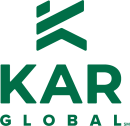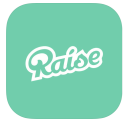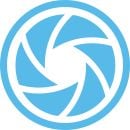
Becoming a coder is an increasingly attractive career choice, with plenty of job options, competitive salaries and the ability to work in almost any industry. But developers often get into the job for more personal reasons. We talked to developers at six Chicago startup to hear their coding backstory.
DRIVIN ensures used-car dealers are getting the best inventory for their area. The company uses local market data to source, acquire and deliver used cars to dealers around the U.S.

Amandeep Binnar, senior software developer
Why did you get into coding?
When I was in high school, I took a class for web development after my dad suggested it to me, and I thought I would change it after a month or so — but I fell in love with coding. It challenged me, and I thought this is something I could do for the rest of my life.
Once you decided you wanted to start coding, how did you turn it into a career?
After high school I took up computer engineering in school, and I went for a bachelor’s degree which I completed in India. After completing my degree, I thought of getting my masters. It was then when I decided to come to U.S. for further education. Luckily I got accepted to all the 5 schools I applied to and I chose University of Wisconsin at Milwaukee. While studying at UWM, I got an opportunity to become a teaching assistant and a research assistant. That was my first teaching experience. And during the summer I would work with College for kids’ program to teach young children from 3rd to 12th grade learn how to code. That was one of the best jobs I ever had. I saw the same passion and excitement in their eyes which I had in high school. I taught them game designing and web development courses. I moved here in 2011 and never went back. Got an amazing education, found my life partner and got my first job here in Chicago.
What do you love about Chicago's coding community?
I think one of the best thing about Chicago’s coding community is its passion to learn. I have met a number of developers in different meetups, who want to know more about the upcoming technologies and are not shy to share their knowledge about different technologies they have come in contact with. I think after Silicon Valley, Chicago is becoming the home to startups and new ideas in information technology.

Megan Bui, Software Developer
Why did you get into coding?
I majored in English and Psychology, and my first real job was as the sole content editor and web maintainer for a 10-year-old website. I was responsible for editing and publishing new content on a regular basis that would encourage middle and high school girls to pursue science and math education. In the meantime, I'd have to fix broken links and figure out workarounds when our custom CMS stopped publishing. I became more and more ambitious: adding comments, building a dynamic navigation menu, using php includes. At some point I was publishing an article showing salaries for women in the sciences and I thought, maybe I should do web development on purpose.
Once you decided you wanted to start coding, how did you turn it into a career?
Because I didn't have a traditional computer science background, I felt like I had to compensate and study extra hard. I signed up with Coursera and Udacity and rented books from the library in order to do the exercises. I also kept an eye out for internships and bootcamps and applied for scholarships so I could put something relevant on my resume.
I finally got a job by networking. A friend from bootcamp said good things about me to a CTO that was hiring for a new startup. I've been with that company for 2 years now. I always felt like I needed to learn just one more thing before I was ready; because someone else said "she's ready now" is why I have a job.
What do you love about Chicago's coding community?
I love the people. They are smart and motivated and optimistic. There is always something going on. Every week you can attend a conference, a meetup or grab coffee with someone you would like to meet or stay in touch with — or all three. I think it is a community that likes to pay it forward; we want each other to succeed. And Chicago is full of ideas! I love all the incubators and mentorship programs for entrepreneurs.
Hiring can be hard. Hireology helps companies oversee the hiring process from start to finish with job postings, candidate assessments and skills verification. It even helps out after a hiring with payroll solutions and human capital management software all in one spot.

Tim Brenner, Team Lead
Why did you get into coding?
I took my first programming class in high school. I liked the teacher and thought I would give it a try. I enjoyed it right away, but what really got me excited was the final project. Working with a partner, we applied everything we learned to create a Jeopardy game. I didn’t know how to use a database, so I put the questions into text files and programmed the music using computer beeps. It was beautiful and I loved making it.
Once you decided you wanted to start coding, how did you turn it into a career?
I majored in computer science in college. During my junior year, I landed an internship at a SaaS company that helped auto dealers sell car parts to other auto dealers. I met some great programmers and it cemented in me the type of company I wanted to work for. After college I got a job as a consultant, but quickly determined it was not for me. I moved to a very small game company in Akron, OH and that is where I really learned what it meant to be a programmer.

David An, Lead Engineer
Why did you get into coding?
I got into coding because I was fascinated by the imperative nature of programming. It was very cool to see how I could control my computer. When I learned to code in QuickBasic, I almost immediately started writing games (I even sold a few to my friends). Bill Gates was my childhood hero. Who would be more cool, to a middle school kid, than someone who quits school and starts a software company?
Once you decided you wanted to start coding, how did you turn it into a career?
I continued to code working on personal projects throughout high school and college. Computer science classes taught me many valuable fundamentals and theories. However, I found that knowing how to apply them in the real world was the key to success. Of course, actively searching for your personal passion in software development is equally as important. Through personal projects, part-time jobs and internships, I had the opportunity to put my knowledge into practice, and I found my passion in specific areas of software engineering.
Ensuring a company's digital security is vital in today's connected world. 5thColumn builds strategies to ensure other companies' data is secure, using automation, network design and advanced encryption, among other techniques.

Adam Yala, Backend Developer
Why did you get into coding?
I got into coding when I interned for a tractor manufacturer in college. I was writing Excel macros to help them process data going into and coming out of their big enterprise systems. After the internship ended I continued doing contract work for them. I knew I wanted to turn it into a career when I was backpacking through Central America writing code for them on the beach. Unfortunately, macros don’t fully pay the bills, so I started teaching myself web development. After graduation I spent a year working as a tax accountant. During that year I probably sunk between 200 and 250 hours into teaching myself. The first web application I ever made was a site that could automate property tax assessment research.
Once you decided you wanted to start coding, how did you turn it into a career?
Once I had that app done I had something I could show companies so I started applying to any startup that had a listing for a junior developer. I think I sent out about 40 applications in 40 days. Two companies offered me an interview. One offered me a job. When you’re more than 30 applications in and have spent over a month searching, the doubt starts to creep in. I’ll never again doubt the troubles of someone struggling in the job hunt.
What do you love about Chicago's coding community?
Chicago’s tech community is one that stresses open source software and teaching those who want to learn. When I was stuck on concepts the folks in the Chicago Python User Group taught me for free. I could go to any of the project nights and attend any of the talks they do. If I was willing to put forth the time and effort, someone there was willing too. Now I mentor people who were learning like me to help pay it forward.

Vince Forgione, Head of Backend Development
Why did you get into coding?
I’ve always been a sampler: I love to mix and match things in life. I jumped majors a few times in college (the joke being “what is my major du jour?”) doing everything from architecture to Spanish. I had a friend who was taking an intro to programming class over the summer and I was curious what that was like, so I started reading the class material and doing the homework for fun. I realized that it was an excellent extension of many of my interests — I could combine logic, math, language, art; the possibilities were endless. After playing around with some basic exercises for a couple weeks, I was totally hooked and I declared myself as a computer science major.
Once you decided you wanted to start coding, how did you turn it into a career?
I had an in with the cybersecurity office at Argonne National Laboratory through my university, and after a few semesters I got an internship with them. While at the lab I worked with the cyber office and networking team. I soaked up everything that I could about the network stack, programming, operating systems, security — probably the most important lesson was how to think on my feet and execute. After college, I took on a series of jobs that pushed me way outside of my comfort zone and forced me to keep learning. Every success and failure along the way has enabled me to further hone my craft.
What do you love about Chicago's coding community?
Chicago is a no nonsense city: Chicagoans pour themselves out and are unfazed by difficult work and take pride in their success. The tech scene here, by and large, embraces those values. I’ve lived in this city most of my life and have a deep affinity for the simple joys of working hard and celebrating the small victories. In spite of the constant churn of engineers to the coasts to chase unicorns, I find Chicago to be an exemplary city for engineers and entrepreneurs to get together and build amazing products, and that’s why I continue to choose to remain a Chicagoan.
Everybody gets bad gift cards from time to time. Raise lets you sell them to get the things you really want. And if you're looking for a sweet deal, you can use Raise to buy discounted gift cards for your favorite stores.

Jenna Whitehouse, Data Engineer
Why did you get into coding?
In my case, my family started me in coding. My dad runs a software consulting business and he helped me learn to code at a young age, first with LOGO then Visual Basic.
At that time, LOGO was pretty rad. Not unlike the ideas behind Scratch, it gives you something visual to work with by moving a turtle around the screen that can draw. Yes, it was an actual pixelated turtle. I can't find the exact version we used, but with that said, education, inspiration and support at a young age can make a world of difference.
Once you decided you wanted to start coding, how did you turn it into a career?
In high school and college, I helped my dad at his software consulting business with customer visits and work for clients. The first production work I ever did was for an accounting and warehouse inventory software, which is probably way less exciting than others’ first coding projects. For me, computers have been my lifelong focus, but it's easier than ever to get started in. At my last job I trained a BI team on Python with Jupyter notebooks for page scraping, map reduce methods and reshaping data for visualization on their own, it was a blast.
What do you love about Chicago's coding community?
Chicago is a big city! There are so many groups and meetups for just about every new tool or language. It's amazing how open companies are with hosting in their space too. Sometimes I wonder what percentage of Chicago's pizza deliveries are for tech events — it seems to be the one and only meetup food.

Andrew Melis, Senior Software Engineer
Why did you get into coding?
After completing my undergraduate degree, my first job was in a hospital entering data into software that was unbelievably painful to use. I quickly realized I would rather create great software instead of using bad software. Once I got started, I loved the cycle of continuous improvement from focused learning, creative problem-solving and subsequently taking on even larger problems. Building things feels great.
Once you decided you wanted to start coding, how did you turn it into a career?
I enrolled in the computer science master’s program at the University of Chicago and was also lucky enough to find an apprenticeship about halfway through the program. The two programs complemented each other perfectly: the UChicago curriculum equipped me to grow with solid fundamentals and breadth, and my mentors at the apprenticeship taught me not only what to expect from my career, but also what employers expect from software professionals.
What do you love about Chicago's coding community?
There is a tremendous amount of energy and excitement in our industry and community. I love to seek out the great developers in Chicago and engage them. I try to adopt their habits, learn their favorite tools, and ask what gets them excited. Getting involved in the community helps me stay humble and stay hungry.
Snapsheet uses modern tech to streamline auto claims processing. So instead of calling up your insurance company and describing your fender bender, you can use your smartphone to stream video of the damage, creating better outcomes for everyone involved.

Anthony Avina, Senior Staff Mobile Engineer
Why did you get into coding?
I fell in love with computers at an early age. In elementary school, I signed up for the computer class every year. We would learn about computing, programming and get to play classics like Oregon Trail and Lemonade Stand on an Apple II. Then we got the internet. It opened my eyes to an entirely new world and I knew that's what I wanted to do. I convinced my mom to get me an Apple Basic programming book and I never looked back.
Once you decided you wanted to start coding, how did you turn it into a career?
In high school, I took AP computer science class, which introduced me to the Java programming language via a development environment called BlueJ. I created a virtual aquarium where a school of fish would swim in unique patterns, reproduce, consume other fish and try to survive. It showed me the power of modern languages and what could be done with a bit of hard work. It served as a great foundation to my career and it solidified my choice to make computer science my major.
What do you love about Chicago's coding community?
I see Chicago's coding community as startup. It's growing at breakneck speed with opportunities everywhere. It's still young enough that members can really impact the community but it has a purpose and goal. Chicago has the potential to be one of the best tech hubs in the country, we just all need to pitch in and help it grow.

Susannah Go, Software Engineer
Why did you get into coding?
When I ask other people why they started coding, most of them say it’s because coding helped them to solve a problem. I had a different experience — for me the initial draw was creativity. This was in the late 90’s when website hosting services like Angelfire, GeoCities and Tripod were popular. I was a teenager, and I was enamored with the idea that I could carve out my own little piece of the internet and make it my own. It seemed like the perfect way to express myself, so I taught myself HTML and started creating web pages.
Once you decided you wanted to start coding, how did you turn it into a career?
For a long time, coding wasn't my career. I focused on mathematics in college and graduate school, and then I accepted a position teaching math at a community college. This was a wonderful career but after some time I decided it wasn’t something I could do for the rest of my life. I remembered how much I enjoyed the programming in college, so I started doing some online coding challenges like Project Euler and Rosalind, and eventually I went back to school to study computer science. After I completed my degree, I focused my search in the startup sector because I wanted to work in a fun environment with smart, innovative people where I would be challenged and learn something new every day. I interviewed with Snapsheet and happily accepted a position as a software engineer.
What do you love about Chicago's coding community?
As a newcomer, I have felt welcome and comfortable here. I am also happy to see that the coding community is quite active and is well represented, both in terms of languages/technologies and the people making up the community. As a side note, when I was close to finishing my degree and asking for advice on how to find a job, a lot of people told me that I would have to go to the Bay Area, or at least one of the coasts, to get a good job. This, of course, is completely false. I had my heart set on Chicago and things are working out very well for me here, so I’m glad I didn’t listen to them!
Working with big data is what Civis Analytics does best. The company helps companies dig into their data and turn up insights that increase efficiencies, improve products and boost revenues.

Eleanor Shoshany Anderson, Data Engineer
Why did you get into coding?
Actually, I started coding very unwillingly. I was required to take two computer science courses as part of my major in another field, and I was grumpy about it. But my professor made it interesting and challenging. Students got a solid background as well as interesting use-cases. (If you're reading this and have a chance to take a course with Anne Rogers at UChicago — do!)
Once you decided you wanted to start coding, how did you turn it into a career?
At the same time as I was learning to code, I had a very cool internship that gave me a lot of data and a lot of freedom to work with it. It was natural to apply what I was learning about coding in school. Soon I realized that I liked manipulating data with code, was good at it and was doing some very needed work. From there it was only a matter of scaling up.
What do you love about Chicago's coding community?
People are so dedicated and generous in sharing their knowledge. I had a great experience as a mentee in Chicago Python User Group's mentorship program. And it was important for me to give back — both as a mentor in that same program, and by expanding the community through a series of intro classes for women at the Chicago Public Library. It's a good cycle.

Jake Battle, Sr. Staff Engineer
Why did you get into coding?
I first got the bug to program as a kid playing Atari with my cousin Andy. We were arguing whether being a fighter pilot or an astronaut would be a better job when he realized we could write Atari games instead. I took a summer class at school and then taught myself (with books — no internet!) from there. The core idea I've always found compelling about programming is that writing code is fundamentally an act of creation. When we write a program, no matter how small, it is like creating our very own little universe. We write the rules of that universe and get to watch how those rules play out.
Once you decided you wanted to start coding, how did you turn it into a career?
I took a relatively traditional path into professional software development. I studied electrical and computer engineering at the University of Illinois. After graduation I worked for a consulting company that did custom software development. This was an excellent first job as I got to see a lot of different companies and work with a wide variety of technologies.
What do you love about Chicago's coding community?
I've worked at several different companies in Chicago over the years and always found the people I've worked with to be humble, smart, committed and hardworking. Genuine teamwork has been the norm and egos have been rare. Even after 20 years, I'm still learning from my teammates.
Answers have been edited for length and clarity.
Images via featured companies
Why did you get into coding? Let us know with a tip or a tweet @BuiltInChicago











.png)